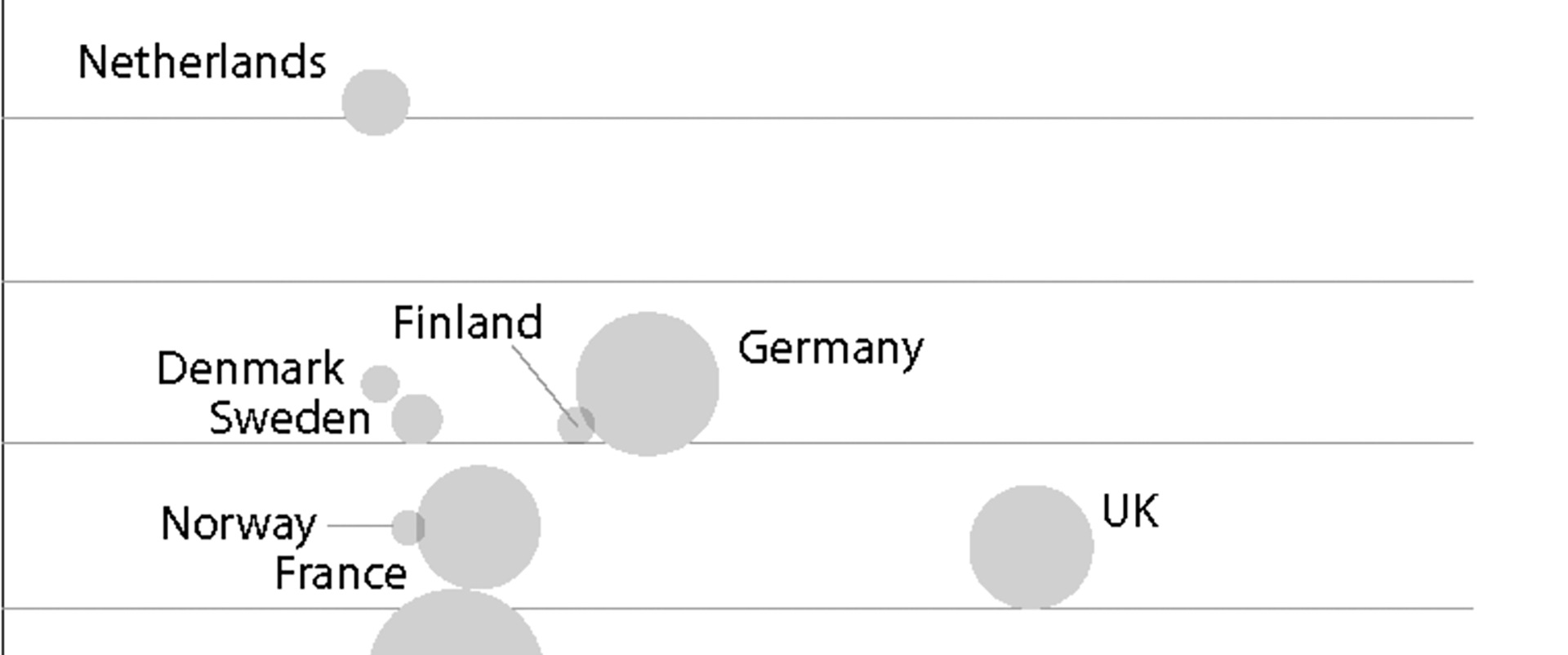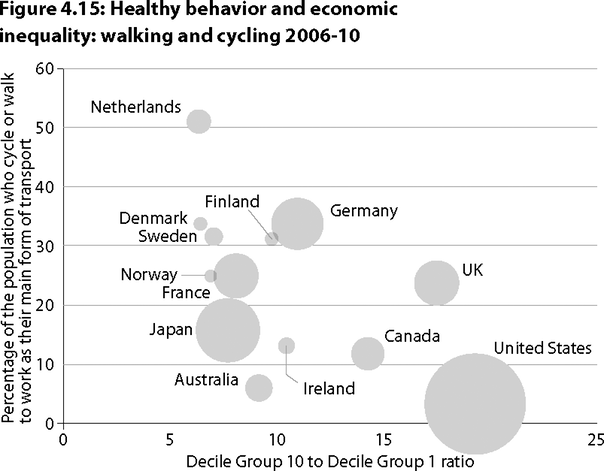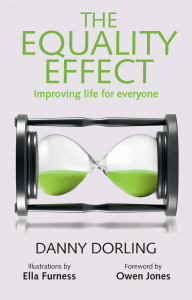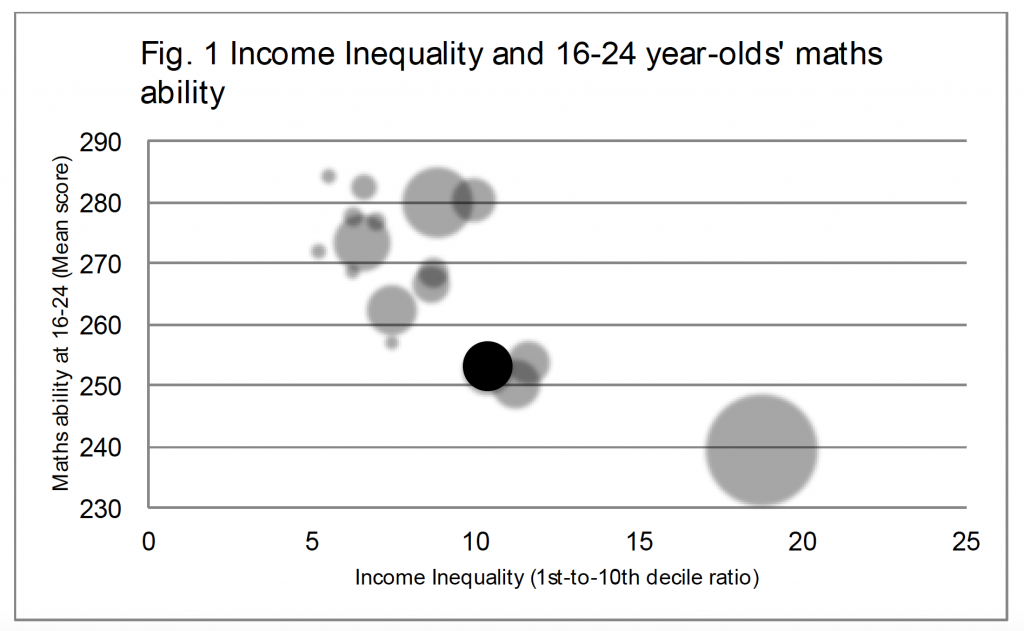The rich, poor and the earth

The most important benefit of the equality effect may be that it leads us to behave in ways that are less environmentally damaging. The evidence for this is only emerging now. We can track the effect across a range of indicators by looking at the 25 richest countries in the world, which have varying levels of inequality. Sometimes comparable data does not exist for all of these countries and we have to consider just a subset, as is the case when looking at the proportion who cycle or walk to work everyday in each country:

Relationship between income inequality and walking and cycling to work
The measure of inequality used here is the ratio between the incomes of the best-off 10 per cent of households and those of the worst-off 10 per cent. It is clear that some rich countries are substantially more unequal than others, ranging from the most unequal – the US – to the most equal – Denmark. So what is the environmental effect of living in a country in which households are economically unequal as compared to living in one in which the economic differences are far smaller? The book from which this article is drawn is able to track the effect in detail across 11 different indicators.

Economic inequality is now being found to be linked to more and more damaging effects, ranging from high pollution to lower education attainment, especially in mathematics and problem solving. People in more economically unequal countries find it much harder to solve not just mathematical puzzles but also how to better organise their societies.

Maths ability for those aged 16 to 24 in 2012
Or read more about the equality effect in general.